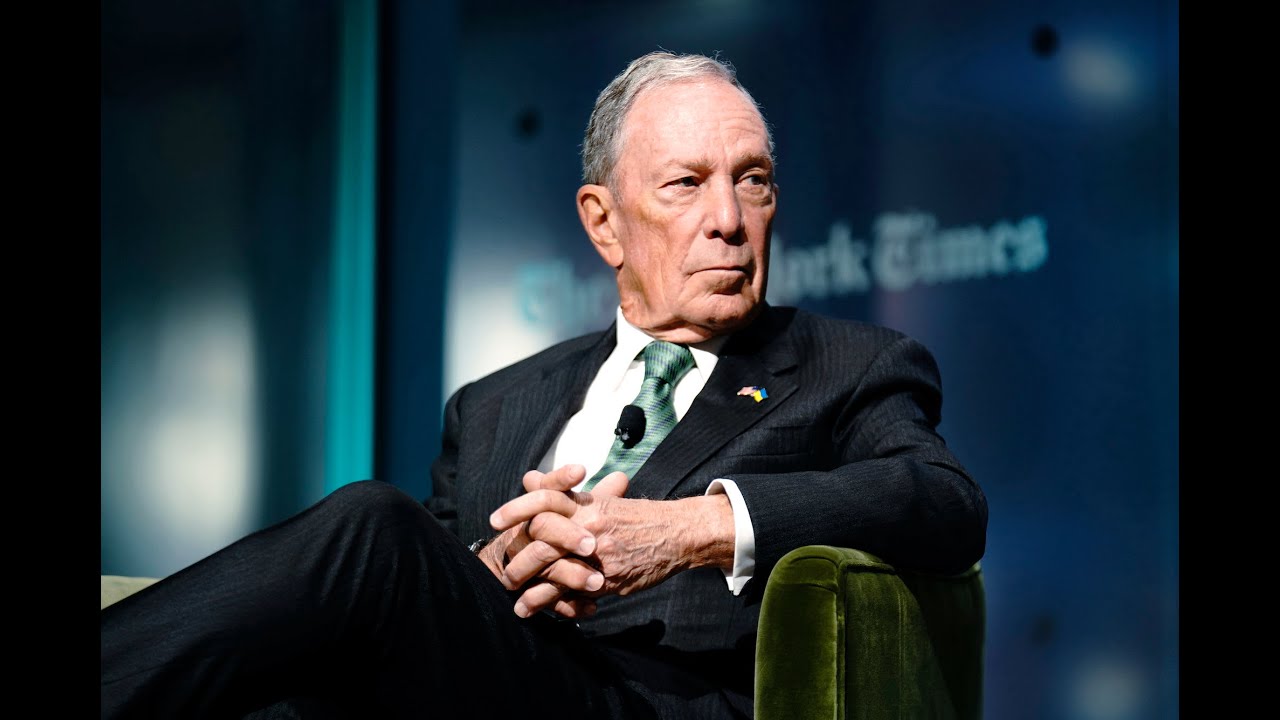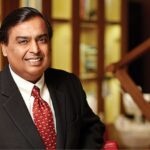- Home
- Billionaires
- Investing Newsletters
- 193CC 1000
- Article Layout 2
- Article Layout 3
- Article Layout 4
- Article Layout 5
- Article Layout 6
- Article Layout 7
- Article Layout 8
- Article Layout 9
- Article Layout 10
- Article Layout 11
- Article Layout 12
- Article Layout 13
- Article Layout 14
- Article Sidebar
- Post Format
- pages
- Archive Layouts
- Post Gallery
- Post Video Background
- Post Review
- Sponsored Post
- Leadership
- Business
- Money
- Small Business
- Innovation
- Shop
Recent Posts
Michael Bloomberg: A Life of Business, Politics, and Philanthropy

Michael Bloomberg is a name that resonates across the worlds of business, politics, and philanthropy. Born on February 14, 1942, in Boston, Massachusetts, he grew up in a middle-class family in Medford. His father, William Henry Bloomberg, was a bookkeeper for a dairy company, and his mother, Charlotte Bloomberg, was a homemaker. From an early age, Bloomberg showed a strong work ethic and an interest in innovation, traits that would define his future endeavors. He attended Johns Hopkins University, where he earned a degree in electrical engineering, followed by an MBA from Harvard Business School in 1966. This academic foundation provided the tools for his remarkable journey through finance and public service.
Bloomberg began his professional career at Salomon Brothers, a Wall Street investment bank, where he quickly rose through the ranks. He was known for his energy, intelligence, and willingness to embrace technology. However, in 1981, after Salomon was acquired and he was let go, Bloomberg received a $10 million severance package. Instead of retiring or finding another executive position, he took a risk and started his own company. That bold decision led to the creation of Bloomberg L.P., a company that revolutionized financial data and analytics. The company’s flagship product, the Bloomberg Terminal, became an indispensable tool for traders and financial analysts, delivering real-time data, analytics, and news to professionals around the world.
The success of Bloomberg L.P. turned Michael Bloomberg into one of the richest individuals in the world. His focus on innovation, customer service, and expansion transformed a small startup into a global empire. But Bloomberg’s ambitions extended beyond business. By the early 2000s, he began to consider public service. In 2001, he ran for mayor of New York City as a Republican, despite having been a lifelong Democrat. He won the election shortly after the tragic events of September 11 and was tasked with leading the city through recovery and rebuilding.
As mayor of New York City from 2002 to 2013, Bloomberg served three consecutive terms. His leadership style was data-driven, technocratic, and pragmatic. He emphasized economic development, education reform, public health, and infrastructure improvement. Under his administration, crime rates continued to decline, and the city experienced significant economic growth. Bloomberg championed controversial policies such as the stop-and-frisk program, which drew criticism for its disproportionate impact on minority communities. He also implemented a public health agenda that included banning smoking in bars and restaurants, limiting trans fats, and proposing restrictions on sugary drinks—earning both praise and ridicule.
Education reform was another cornerstone of Bloomberg’s mayoralty. He pushed for greater accountability in public schools, expanded charter schools, and emphasized data collection to improve performance. His administration also invested in green initiatives and sustainability, launching PlaNYC, a long-term strategy to prepare the city for one million more residents while reducing its environmental footprint. While some of his policies sparked debate, few could deny his impact on the city’s transformation.
After leaving office, Bloomberg returned to his company and focused increasingly on global philanthropy and advocacy. Through Bloomberg Philanthropies, he has donated billions of dollars to causes ranging from public health and education to environmental protection and the arts. His philanthropic work includes major contributions to anti-smoking campaigns, gun control efforts, climate change initiatives, and pandemic response. Bloomberg has signed The Giving Pledge, committing the majority of his wealth to charitable causes during his lifetime.
In 2020, Bloomberg entered the Democratic primary for president, investing over a billion dollars of his own money into the campaign. His late entry and unconventional strategy—bypassing early primary states—ultimately failed to resonate with voters, and he withdrew after Super Tuesday. Despite the short-lived campaign, Bloomberg used the platform to promote key issues such as climate action, gun safety, and economic opportunity. He later endorsed Joe Biden and invested heavily in Democratic efforts to defeat Donald Trump in the general election.
Throughout his life, Bloomberg has remained a complex and often polarizing figure. His critics point to his wealth, technocratic style, and past policy decisions, while his supporters highlight his achievements, efficiency, and philanthropic contributions. As a self-made billionaire, he embodies the American ideal of hard work and innovation. As a politician, he brought a business-like approach to governance, focused on metrics and outcomes. As a philanthropist, he has shaped global agendas on public health and climate resilience.
Despite his immense wealth, Bloomberg is known for his frugality and hands-on management style. He continues to work from a desk in the center of Bloomberg L.P.’s open-plan office and maintains a relatively modest personal lifestyle compared to others in his financial bracket. His approach to both business and politics is rooted in facts, data, and results—a mindset that has earned him both admiration and criticism.
Michael Bloomberg’s story is one of transformation, from a middle-class kid in Massachusetts to a billionaire entrepreneur, to a three-term mayor of the nation’s largest city, and to a global philanthropist. His impact spans multiple sectors and continues to shape conversations around policy, public health, and the future of cities. He has demonstrated that with determination, intelligence, and a willingness to take risks, it is possible to leave a lasting legacy across industries and communities. His work is ongoing, and whether through his foundation, his business, or his influence in global policy, Michael Bloomberg remains a force for change in the modern world.
- 2020 election
- American businessman
- billionaire entrepreneur
- billionaire philanthropist
- Bloomberg L.P.
- Bloomberg Philanthropies
- Bloomberg Terminal
- Carbon Emissions
- charter schools
- Clean Energy
- Climate Change
- Data Analytics
- data-driven politics
- Democratic primary
- Economic Development
- education reform
- environmental protection
- Financial Data
- Financial Technology
- Giving Pledge
- Global Health
- Global influence
- gun control
- gun safety
- Harvard Business School
- health policy
- Joe Biden
- Johns Hopkins University
- mayor of NYC
- media innovation
- media mogul
- Michael Bloomberg
- modern cities
- New York City
- Philanthropy
- PlaNYC
- Public Health
- public service
- public-private partnership
- Renewable Energy
- Salomon Brothers
- smoking ban
- stop and frisk
- sugary drink law
- Sustainability
- technocratic leadership
- trans fat ban
- Trump opposition
- Urban planning
- Wall Street
Recent Posts
Categories
- 193 Countries Consortium Partner1
- 193cc Digital Assets2
- 5G1
- Aerospace & Defense48
- AI37
- Arts3
- Banking & Insurance11
- Big Data3
- Billionaires1,506
- Boats & Planes1
- Business332
- Careers13
- Cars & Bikes79
- CEO Network1
- CFO Network17
- CHRO Network1
- CIO Network1
- Cloud10
- CMO Network18
- Commercial Real Estate7
- Consultant1
- Consumer Tech194
- CxO1
- Cybersecurity73
- Dining1
- Diversity, Equity & Inclusion4
- Education7
- Energy8
- Enterprise Tech29
- Events11
- Fintech1
- Food & Drink2
- Franchises1
- Freelance1
- Future Of Work2
- Games149
- GIG1
- Healthcare79
- Hollywood & Entertainment203
- Houses1
- India’s 1000 Richest1
- Innovation46
- Investing2
- Investing Newsletters4
- Leadership65
- Lifestyle11
- Manufacturing1
- Markets20
- Media327
- Mobile phone1
- Money13
- Personal Finance2
- Policy569
- Real Estate1
- Research6
- Retail1
- Retirement1
- Small Business1
- SportsMoney42
- Style & Beauty1
- Success Income1
- Taxes2
- Travel10
- Uncategorized15
- Vices1
- Watches & Jewelry2
- world's billionaires1,475
- Worlds Richest Self-Made Women2
Related Articles
Francis Choi: The Toy Tycoon Behind a Billion-Dollar Empire
Francis Choi Chee-ming, often referred to as Hong Kong’s “King of Toys,”...
By 193cc World's BillionairesJune 6, 2025Francine von Finck and the Legacy of a Discreet Fortune
Francine von Finck, a name that commands respect in elite business circles,...
By 193cc World's BillionairesJune 6, 2025The Life and Legacy of Stefano Pessina
Stefano Pessina, one of the most influential figures in the global pharmaceutical...
By 193cc World's BillionairesJune 6, 2025John Morris: A Life of Vision, Growth, and Legacy
John Morris, the founder of Bass Pro Shops, is an iconic figure...
By 193cc World's BillionairesJune 6, 2025















Leave a comment